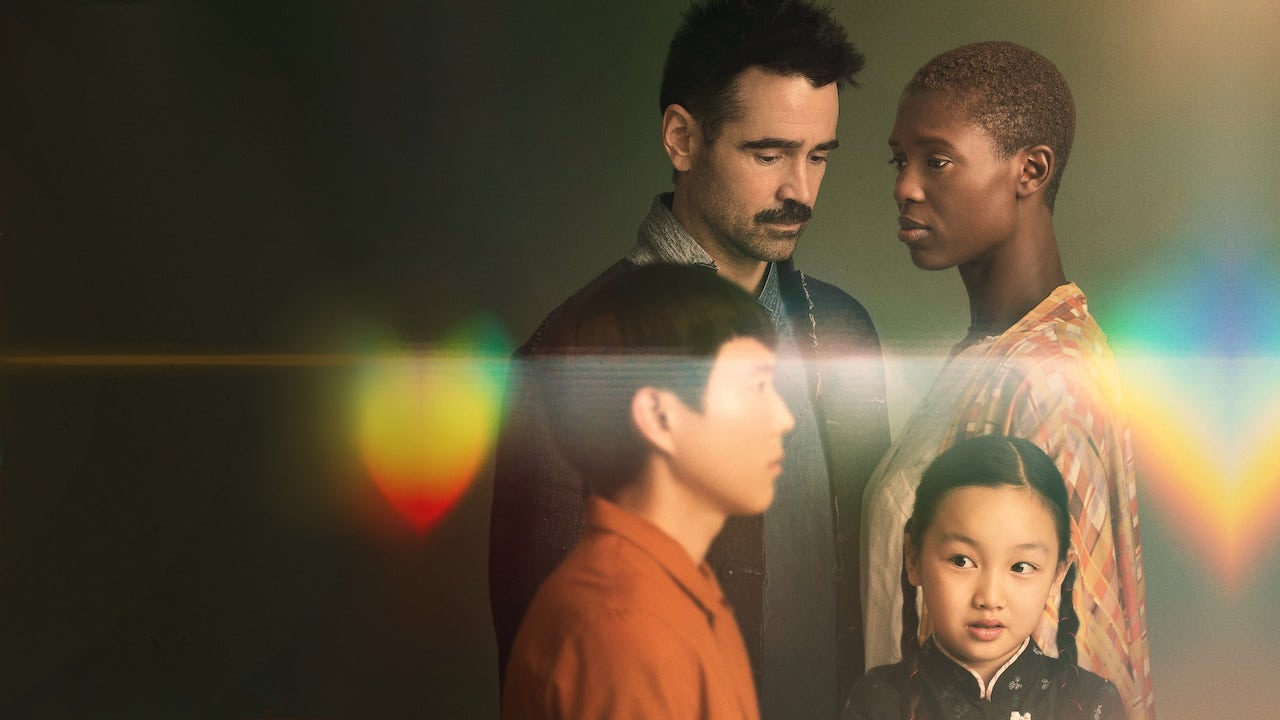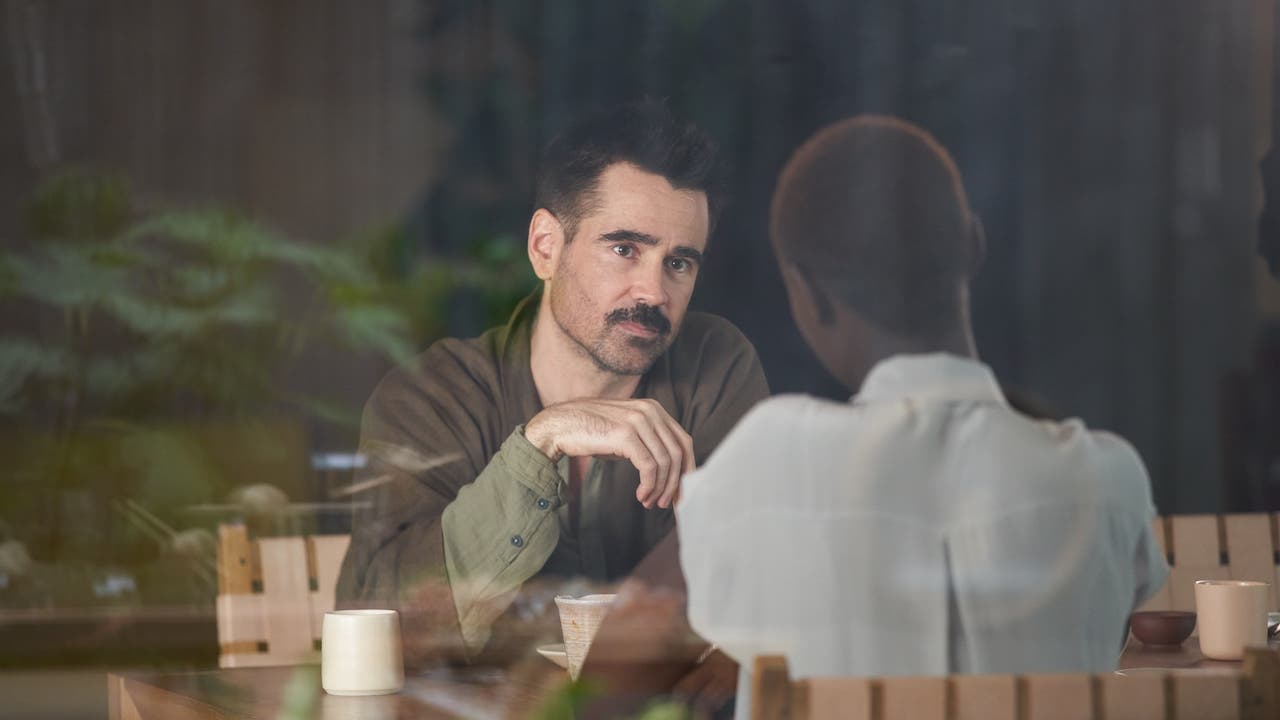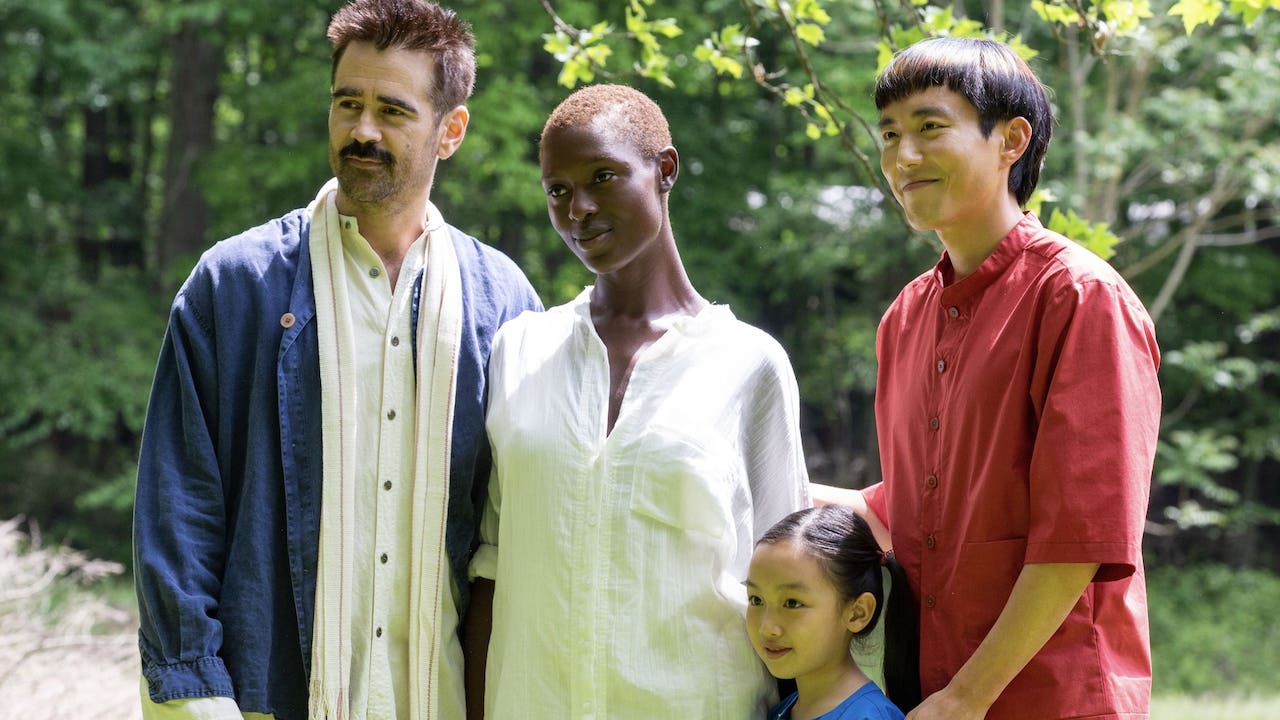After Yang is a trenchant family drama viewed through a sci-fi lens

Kogonada directs After Yang with a “sweet sadness” you might not find in many futuristic robot nanny stories. Here’s Travis Johnson’s effusive review.
After Yang
Tea shop owner Jake (Colin Farrell) and his wife Kyra (Jodie Turner-Smith) have two children: young Mika (Malea Emma Tjandrawidjaja) and teenager Yang (Justin H. Min). Mika, of Chinese heritage, is adopted, but Yang is actually purchased—he’s a sophisticated biological android of Chinese appearance, loaded with information and trivia about China, designed to give Mika a connection to her home culture.
Unfortunately, he’s also a refurbished model, and despite Jake’s protests that second hand is just as good as new, he breaks down.
Faced with Mika’s distraught reaction, Jake sets off to get Yang repaired, which turns out to be an odyssey and a half. In the process, he begins to understand that Yang wasn’t just keeping Mika entertained and educated—he was the linchpin keeping their little family from tearing apart at the seams.
Written and directed by Korean-American video essayist Kogonada, who adapted Alexander Weinstein’s short story “Saying Goodbye to Yang”, After Yang is a thoughtful piece of speculative cinema, eschewing the effects-heavy spectacle of action sci-fi for a more thoughtful, lo-fi approach, not a million miles away from Noah Hutton’s Lapsis and Spike Jonze’s Her. We’re in the future, certainly, but a close and recognisable version thereof, where the social and cultural trappings are similar to our own and while technological change is evident, it’s both limited and pervasive.

Onto this background is mapped a rather melancholy story of familial alienation, as Farrell’s hangdog, distant dad comes to realise that Yang has been doing a lot of the emotional heavy lifting when it comes to raising a child, while he’s been pottering in his struggling tea emporium.
Things get complicated when it becomes apparent that Yang had his own interiority and private life, embarking on a relationship with a human girl, Ada (Haley Lu Richardson). Ever so gently, we’re asked to consider notions of personhood and agency, and even the nature of consciousness itself, as Jake delves deeper into the heretofore unknown history of his robot nanny.

Painterly and meditative, After Yang offers us a vision of a uniquely comfortable consumer dystopia, one where the physical pleasures and requirements of life are in abundance but human connection is lacking, and the most difficult emotional labour is offloaded to handy, labour-saving devices. There’s a sweet sadness to the proceedings, underscored by Benjamin Loeb’s dreamy cinematography, as we follow Jake on his quest to fix Yang, his family, and his own wounded heart.
Farrell, who we now widely acknowledge as a superb character actor who was briefly miscategorised as a marquee star, is eminently watchable in the lead role, his unvoiced loneliness and dissatisfaction with his life palpable in his every moment on screen.

That we don’t recoil from this man, who is so alienated from his family at first that it’s easy to come to the conclusion that he doesn’t actually like them, is a testament to Farrell’s skilful performance.
Instead, we feel empathy, and desperately hope that, by the time the credits roll, he feels some too. Roger Ebert once described movies as “empathy machines”, and now here’s After Yang: a film about a literal empathy machine, and as fine a piece of science fiction as you’re likely to find this year.




















